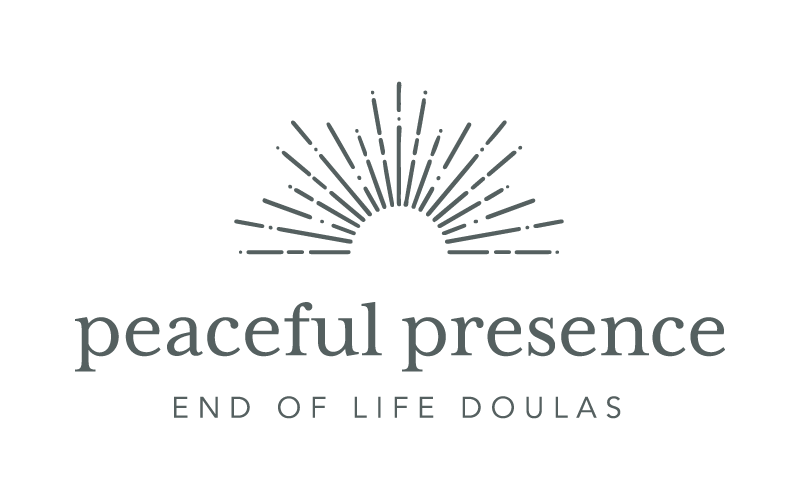endnoteS : Live well, age well, die well
Additional Helpful RESOURCES
1. PEACE OF MIND
2. PEACE FOR MY BODY
3. PEACE FOR MY HEART
4. PEACE FOR WHEN I’M GONE
Healthcare Details
Advance Directive: https://prepareforyourcare.org/advance-directive
customized for your state of residence. If you spend a considerable amount of time in more than one state, it is advised to have a directive for each state in which you reside.Advance Directive for Dementia: https://dementia-directive.org/
Legal & Financial Details
Power of Attorney: there are two types of decision-making that can be made by another person who you appoint. A Medical Power of Attorney, or Healthcare Representative, knows you well and is able to speak for you when you can’t speak for yourself in regards to your healthcare. A Durable Power of Attorney enables the person you appoint to handle financial and legal matters on your behalf if you become unable to speak for yourself.
Your “When I Die” File: You may gather all your documents in printed form and designate a drawer in your home or a portable file. You may also want to digitize all your documents and save them in an electronic file.
Post-death wishes
You may already know that you want to be buried or cremated. You may be considering having a home funeral or even a natural burial. Following is a list of some options you may not have known existed:
National Home Funeral Alliance:
https://www.homefuneralalliance.org/
The Green Burial Council:
https://www.greenburialcouncil.org/
Oregon Funeral Resources & Education
https://www.oregonfuneral.org/
SoulBursts Cremation Ash Art:
Legacy and Letters
There are so many ways to leave behind your legacy, or to convey the words that need to be said when you are gone.
Stanford Letter Writing Project : The Stanford Letter Project began in 2015 based on many years of research and discussions with people from various cultural and social backgrounds. They found that while almost all doctors agree that it is important for them to have end-of-life conversations with their patients, most doctors struggle with these conversations. They also found that patients from all ethnic backgrounds feel that is is very important for them to have end of life conversations with their doctors and their family members. However, patients do not quite know how to initiate these conversations. Based on these research findings, the Letter Project tools were created to help you write letters about your wishes for care in the future.
Ho’oponopono: “To Make Things Right”
Ho'oponopono is a centuries old native Hawaiian method of apology and forgiveness.
The four steps in ho'oponopono are remorse, forgiveness, gratitude and love.
Ho'oponopono can be used in person, or even if the relationship seems irreparable, or if the other person has passed away.
I LOVE YOU. I’M SORRY. THANK YOU. I FORGIVE YOU/PLEASE FORGIVE ME
Grief Support
Clear Mourning: A partner 501(c)3 nonprofit organization based in Central Oregon. Their mission is to shift the culture surrounding grief and to hold space for those who have experienced a tragic loss.
Everyone person should have the opportunity and freedom to grieve their loss.
The Dougy Center for Grieving Children & Families: The mission of Dougy Center is to provide grief support in a safe place where children, teens, young adults, and their families can share their experiences before and after a death. They provide support and training locally, nationally, and internationally to individuals and organizations seeking to assist children who are grieving.
The Center for Loss & Life Transition: Led by death educator and grief counselor Dr. Alan Wolfelt, they are an organization dedicated to helping people who are grieving and those who care for them.




